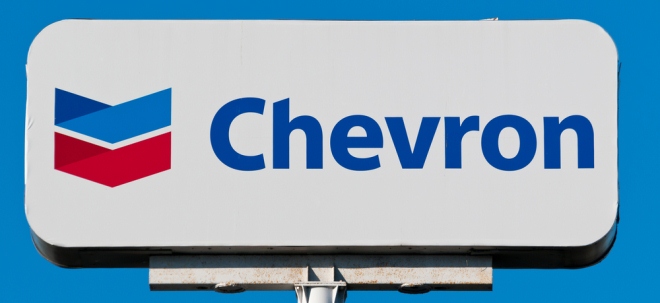Chevron is tripling its spending on low-carbon technologies, which CEO Mike Wirth says is an increasingly lucrative business.
The US oil giant plans to spend a total of $10 billion on biofuels, hydrogen production, carbon dioxide capture and other climate-friendly technologies by 2028, it announced in San Ramon, California. To date, there has been a voluntary commitment of about $3 billion.
CEO Wirth said in an interview that the increase in investments reflects optimism about the new division of renewable energies. Its creation was announced in July. According to Chevron, it expects to generate more than $1 billion in operating cash flow by 2030. “We’ve reached a point where we have enough knowledge about technologies,” Wirth said.
Despite tripling, green technology investments are still a fraction of what Chevron has to offer oil– It offers gas projects. It said in December investment spending would be between $14 billion and $16 billion annually through 2025. About 10 percent of this will be allocated to low-carbon activities.
Wirth pursues a strategy of continuing to invest in its traditional business while opening up new options in the energy transition. The CEO said that Chevron could invest more in low-carbon energy if there were certain policy incentives. During the day, the manager intends to detail his plans to investors under the heading “Higher Returns, Less Carbon”.
Investors are increasingly demanding that oil companies move beyond fossil fuels and strategize how to deal with tougher global climate targets. According to earlier information from the Wall Street Journal, Chevron is preparing for potential challenges from active investors, as rival Exxon Mobil did at the beginning of the year with hedge fund Engine No. 1 experienced.
Chevron sees no future for itself in wind or solar parks
According to Wirth, Chevron has no plans to start producing solar or wind energy. These are mature companies, he said, with little profit opportunity for Chevron. Instead, he wants to ramp up biofuel and hydrogen production and has signed several purchase agreements with industrial companies and airlines in the past few weeks. Chevron also wants to capture or offset 25 million tons of carbon dioxide emissions annually.
Unlike its competitors, the group has not entered into a net zero commitment to reduce greenhouse gas emissions. Wirth stated that they do not want to set goals for which there is no plan to implement. Instead, Chevron has committed to proportionately reducing emissions from total energy produced. Here it is said that the previous goals have been achieved.
Several major oil companies in Europe, including BP and Shell, have committed to reducing net carbon emissions from their facilities since 2020. The Wall Street Journal reported in August that ExxonMobil was considering a similar commitment.
In May, nearly 61 percent of Chevron shareholders voted for the company to reduce emissions from the use of its products. This was a defeat for Chevron’s leadership, which had proposed rejecting this proposal.
Chevron will publish an updated report later this year on its efforts to reduce greenhouse gas emissions. CEO Wirth said in an interview that investors will now also be informed of his thoughts on Net Zero. “We’re not against everything,” Wirth said of such goals. “But in order to state that we believe we can do it, we must be confident that we can do it.”
Chevron shares temporarily lost 1.28 percent to $96.72 on the New York Stock Exchange.
Houston (Dow Jones)

“Total coffee aficionado. Travel buff. Music ninja. Bacon nerd. Beeraholic.”








More Stories
Wealthy families take more risks when it comes to money.
Salesforce and NVIDIA Form Strategic Collaboration to Drive AI Customer Innovation
Changing banks causes problems for customers